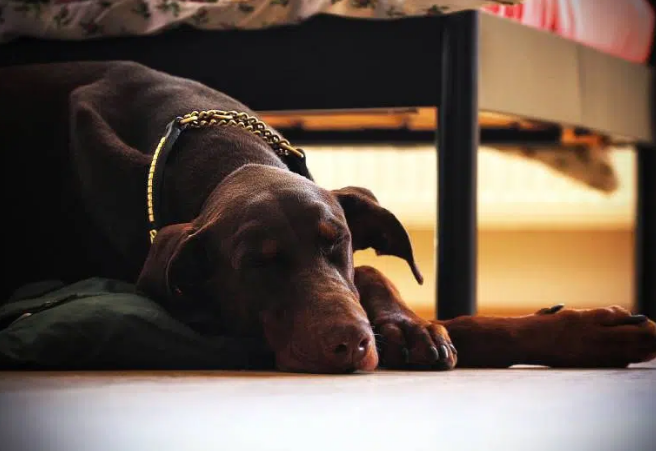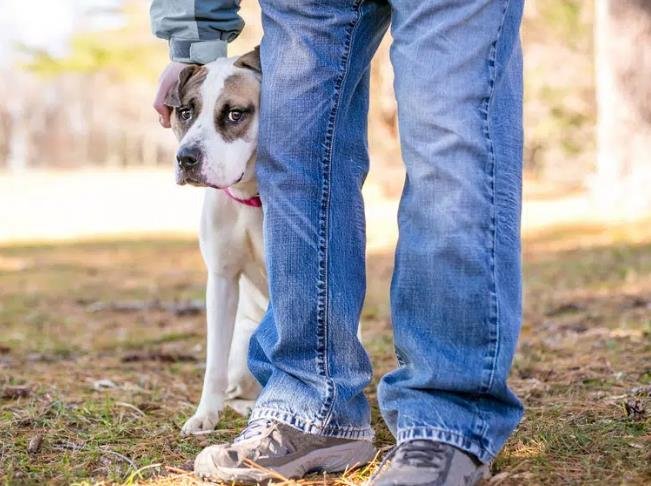Can You Leave a Doberman Alone? 2025 Vet Tips to Prevent Anxiety & Destruction
Leaving your Doberman home alone feels like walking a tightrope, doesn’t it? On one paw, work calls. On the other, those soulful eyes beg you not to go. Let’s crack the code on Doberman solo time—without the guilt or chewed-up shoes! 🐾

The Doberman Dilemma: Why They Hate Being Solo
Dobermans are Velcro dogs—loyal to a fault and wired to stick by your side. While they can handle short stints alone, leaving them for hours often backfires. Here’s why:
- Separation Anxiety Strikes Hard
Dobermans bond intensely with their humans. Without you, panic sets in. Think excessive barking, pacing, or even destructive chewing—classic signs they’re screaming, “Come back!”. - Boredom = Chaos
These dogs are Einstein-level smart. A bored Doberman? That’s like handing a toddler a marker and saying, “Go nuts.” They’ll redecorate your home with couch fluff and shredded pillows. - Puppies Need Constant Care
Under 6 months? Puppies can’t hold their bladder longer than 4 hours. Leaving them solo risks accidents and stunts bonding during their critical “imprint” phase.
Fun fact: Adult Dobermans might manage 8-10 hours alone—if trained perfectly. But let’s be real: Would you want to be stuck home that long?
2025 Vet-Approved Hacks to Keep Your Doberman Calm
1. Build a “Safe Zone” Sanctuary
- For adults: Designate a dog-proofed room with their bed, water, and a view (but not the yard—they’ll bark at squirrels all day!).
- For pups: Use a crate with cozy blankets. It mimics a den, easing anxiety. Pro tip: Toss in a shirt that smells like you!
2. Beat Boredom with Brain Games
- Puzzle feeders: Stuff a Kong with peanut butter and freeze it. Mental workout + snack = happy Dobie!.
- Rotate toys: Hide their favorites for a week, then reintroduce. Novelty = instant entertainment!
3. Master the “Alone Time” Training
- Start small: Leave for 5 minutes. Return calmly—no dramatic hellos! Gradually extend to 30 mins, then 2 hours.
- Desensitize cues: Jingle your keys or grab your bag without leaving. This breaks the “OMG they’re leaving!” panic.
4. Tech to the Rescue!
- Pet cameras: Chat through a Furbo or Petcube. Toss a treat remotely to reward calm behavior.
- White noise machines: Mask outside noises (mail trucks, barking dogs) that trigger alert mode.
5. Exercise = Exhaustion
A tired Doberman is a quiet Doberman! Before work:
- 45-minute power walk: Let them sniff everything—it’s mental enrichment!
- Agility drills: Set up DIY hurdles in the yard. Jumping burns energy fast.

Red Flags Your Dobie’s Struggling
Watch for:
- Destruction: Ripped curtains? Digging holes? They’re stressed, not “bad.”
- Potty accidents (adults): Sudden indoor puddles signal anxiety, not spite.
- Excessive drooling/panting: Physical signs of panic.
Vet note: If symptoms persist, ask about anti-anxiety meds or CBD chews. No shame—sometimes brains need a reset!.
When You Must Leave: Survival Checklist
- Automatic feeder: Portions meals to prevent overeating.
- Puppy pads: For emergencies (even adults appreciate the backup!).
- Dog walker: Hire a pro for midday breaks. Apps like Rover make it easy!
TL;DR
Yes, Dobermans can handle alone time—but it’s a skill, not a given. With smart prep and patience, you’ll avoid the “guilty dog mom” vibe. Remember: A calm, stimulated Dobie is a home-safe Dobie. Now go conquer that workday—your furry CEO will be napping, not plotting!
Got a solo-survivor Doberman? Share your tips below! 🐶💼



